Best Pregnancy Books
There are some awesome pregnancy books out there that will truly enrich this whole experience for you and your partner.
Ahhhnnnd… there are also some really crappy pregnancy books that are either completely outdated and/or a total waste of time. And still others will only scare you.
Which books are the best?
It really depends on your personal philosophy on pregnancy and birth and the depth of knowledge that you hope to attain.
Books For Pregnancy
Based on my reading, research, and reading tons (and tons!) of reviews, here is what I recommend and why:
Expecting Better, Emily Oster
Best for: Parents who like numbers, tend to ask lots of questions, and want an educated take on the most common pregnancy questions.
Personally, I love this book.
Oster is a medical economist who uses her statistics training to come up with her own answers to questions about pregnancy – Expecting Better is like Freakonomics for pregnancy. It has a sort of “myth-busting” feel to it, which some people might enjoy but might be a turn-off for others. For example, Oster took a lot of heat for suggesting that it’s OK to drink small amounts of alcohol in moderation. Whether or not you agree with her personal decisions (which she shares openly), Oster’s take on topics like weekly miscarriage risks, dietary advice, weight gain, genetic testing, and home birth are definitely informative.
Readers should know that Oster isn’t a medical doctor, but she’s a qualified researcher who explains her findings and shares her “bottom line” recommendations (which are more like “things to know” than advice, per se). Anyone who has second thoughts about the “doctor’s orders” will probably enjoy this read – it’s an excellent all-around pregnancy resource, and one I’ve continued to return to many times.
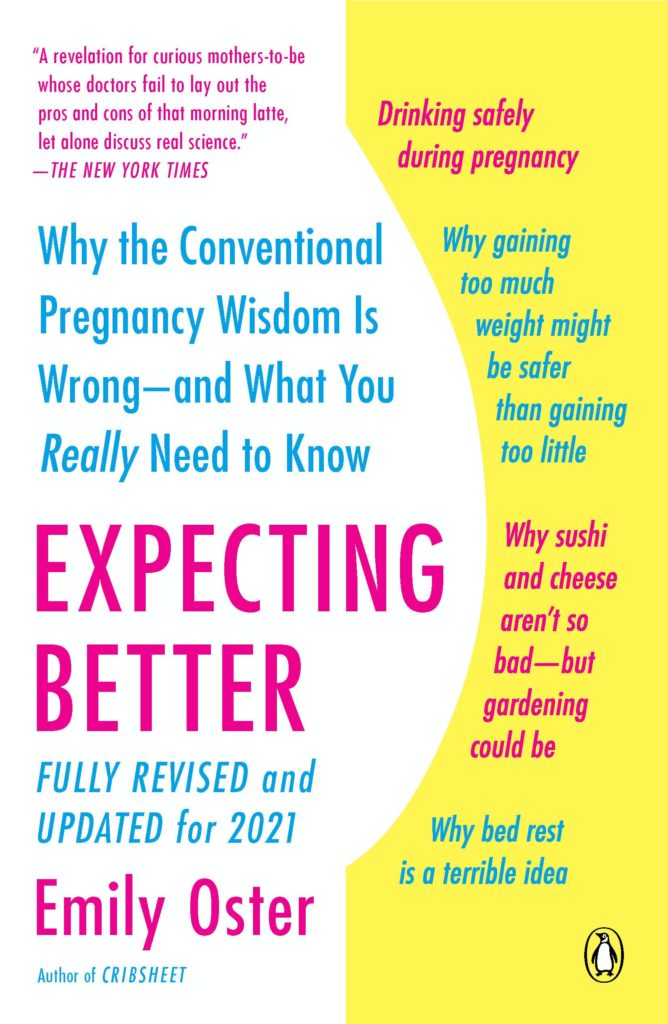

Like a Mother, Angela Garbes
Best for: Readers who like their pregnancy books dished up with a bird’s eye view; this one offers a feminist, analytical, empowering take on the culture of pregnancy in America.
Like a Mother is dripping with (well-deserved) cultural criticism (the subtitle is telling: “A Feminist Journey Through the Science and Culture of Pregnancy”). Part memoir, part science book, and part social commentary, this is an amazing and refreshing read across the board (not just for pregnant women).
So many women who read this book look back and think of it as a “game changer,” a “must read,” or an “eye-opener” — it clearly resonates. And we totally agree — this book is noteworthy for inclusivity and for not shying away from “taboo” topics (the science of the placenta, for example, or plain and simple anxiety). It definitely falls in the “tell-it-like-it-is” category, while still being highly informative. Note that if you’re looking for a “how-to” pregnancy book, this is probably not the best choice (because it’s not that kind of book) — but we think everyone should read it anyway!
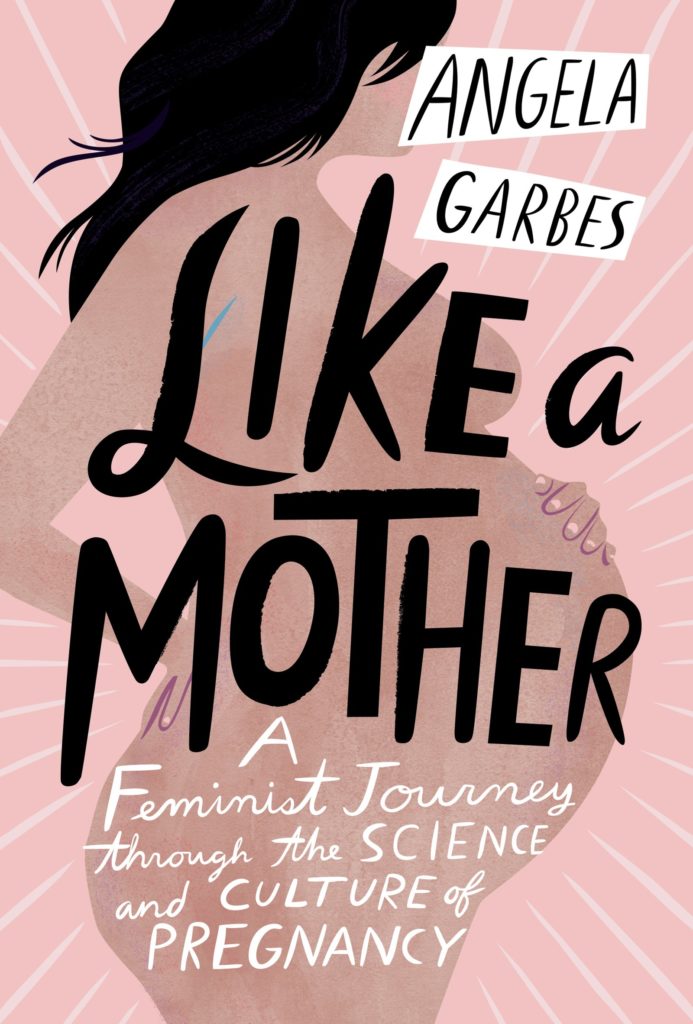

Carrying On, Brittany Clair
Best for: Women who have questions about why prenatal health “works” the way it does in the U.S. and why we follow certain medical advice.
This book is part-science, part-history, a dash of memoir, and it lives in the weeds. It’s nine chapters that follow some sort of rough chronological logic, but all stand in relative isolation (i.e., you could jump around, skip a chapter, or read in whatever order suits you) and dive into one key question or topic. For example: How has medicine (not) managed morning sickness over time? When did we start using obstetric ultrasound, and what is it doing for us? When the hell — and why — did prenatal weight gain recommendations gain any traction? What about exercise guidelines?
In the world of pregnancy books, this one is “grown-up” (hah). It tries to cut through the standard pregnancy advice, but in a different way… Instead of asking whether it’s safe to eat sushi (it is) or workout (also yes), it asks why we care about these things in the first place, and whether the current prevailing norms and protocols are actually serving moms and babies. It is *not a book of answers — so if you are looking for a book that will confirm what you’re “allowed” to eat, what position to sleep in, or whether you can get a pedicure, this is not that book.
Also, full disclosure: Brit (on our team!) wrote this one — so that’s cool :).
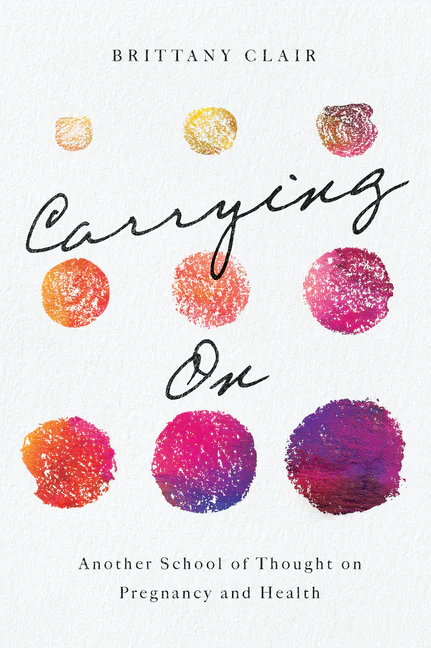

Bumpin’, Leslie Schrock
Best for: Readers who want an approachable, comprehensive pregnancy text that covers basic biology, common questions, and lifestyle issues — with a tone that’s equal parts sophisticated and friendly.
This newer pregnancy book is one of the most comprehensive and relatable on the market — Schrock covers everything from TTC & conception all the way through the fourth trimester. A smart mix of science, biology, Q&A, “real life” stuff, personal reflection, and checklists, this is a great book for first-time moms especially.
Reading Bumpin’ feels like talking to a friend who’s “been there,” and one thing I think really sets it apart is the timely guidance/perspective on things as far-reaching as child care (get on wait lists early) and genetic testing (know your options) to baby registries (we have a guide, did you know?), baby names, and mental health (respect it). Interwoven with all this is Schrock’s easy-to-follow synthesis of the latest evidence on all the “pregnancy police” topics (aka, food/alcohol/exercise/work/etc./etc.). IOW, it’s both lifestyle and technical, and it’s very informative without being overly didactic.


1,000 Questions About Your Pregnancy, Jeffrey Thurston
Best For: Informed parents who are looking for solid answers to common pregnancy questions based on clinical studies.
This book is often recommended by OBs to their patients because it answers so many important questions in an analytical yet user-friendly way. The “1,000 questions” tell the story of fetal development and physical changes/ailments — and you can read them as such.
Alternatively, you can use it as a reference manual to get reliable answers to questions like, “Is it okay to take a decongestant in the 2nd trimester?”(Do you really want to call your OB every time you have a simple question because you don’t trust idiots on Yahoo answers to know the truth? Hmmmm, no.)
Thurston’s tone is conversational, practical, non-preachy, appropriately humorous, and he speaks to you like the educated adult you are. An absolute must-have, in my opinion.
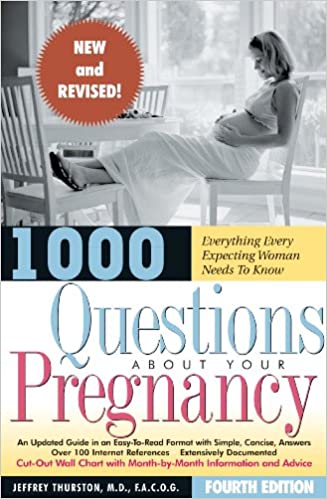

Pregnancy, Childbirth, and the Newborn: The Complete Guide, Penny Simkin (and others)
Best For: People who only want to buy ONE comprehensive book (that covers pregnancy, labor, and early infancy) and who are seeking balanced and unbiased information on issues such as breastfeeding, childbirth, etc.
By renowned pregnancy-author (and doula) Penny Simkim, this is another data-rich book written by a team of professional female childbirth educators.
This is a great book that considers the individual needs of a woman and her family, while allowing for a broad discussion on all aspects of pregnancy and delivery. It covers practical matters such as selecting a birth center/hospital/healthcare provider and creating your birth plan as well as infant care (most other books do not).
Penny has helped deliver over 10,000 babies in her lifetime — wowsers.
If you’re looking for an all-in-one must-have, this is the book for you.
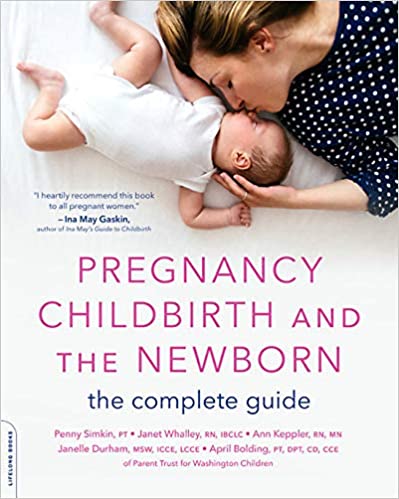

The Complete Book of Pregnancy and Childbirth, Sheila Kitzinger
Best For: Those who approach childbirth as an exhilarating, natural phenomenon that doesn’t (necessarily) require medical intervention and/or those looking for encouragement to go au naturel.
This is a modern, uplifting, female-centered book which focuses on the anthropological aspects of pregnancy and childbirth written by opinionated but well-educated British author, Sheila Kitzinger (yes, she enjoys crumpets and tea, THANK YOU for asking).
Kitzinger gives candid and practical information about what modern mothers need to know and goes into detail about fostering a good relationship with your OB (or other caregiver) and actually enjoying a hospital, birth-center, or home birth.
**This book covers pregnancy, but is really more geared at preparing for childbirth.
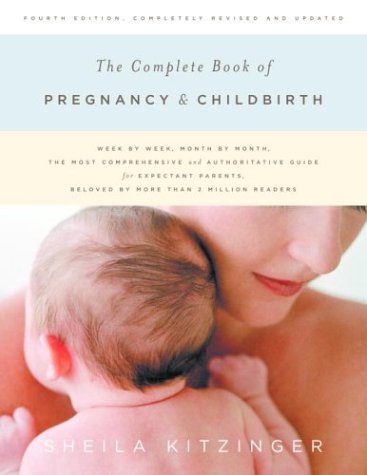

What to Expect When You’re Expecting, Heidi Murkoff
Your mom (haha, “your mom”) probably read this book when she was pregnant with YOU. This book is the old standby for pregnancy (with emphasis on the word “old”).
This book is loved by many; however, its contents tend to be a little fear-mongery and very old school. It will cover everything that can possibly go wrong (“you might be worried about…”). Well – NO! I wasn’t actually worried about that, but I am now!!! Thanks, Obama.
Furthermore, I don’t find it very up-to-date with respect to recent updates on c-section, delivery, mother’s diet, etc. The tone is overly cutesy and cheery and not my personal style — BUT — many people like it. Midwesterners and such (kidding!).
So there’s that.
After that ringing endorsement (snort), this book is available in paperback and on Kindle.
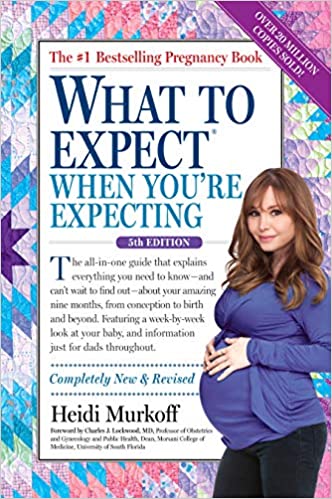

Here are some more books we love that may be applicable to you, depending on your situation:
The Expectant Father: The Ultimate Guide for Dads-to-Be, Armin A. Brott and Jennifer Ash
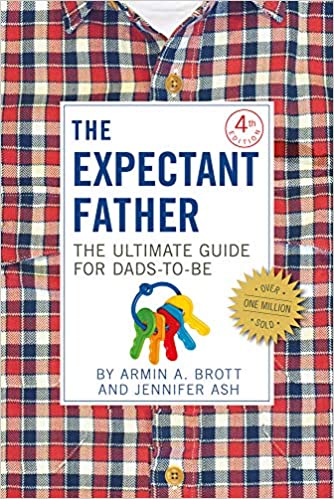
Big, Beautiful, and Pregnant: Expert Advice & Comforting Wisdom for the Expecting Plus-Size Woman, Cornelia Van Der Ziel & Jacqueline Tourville
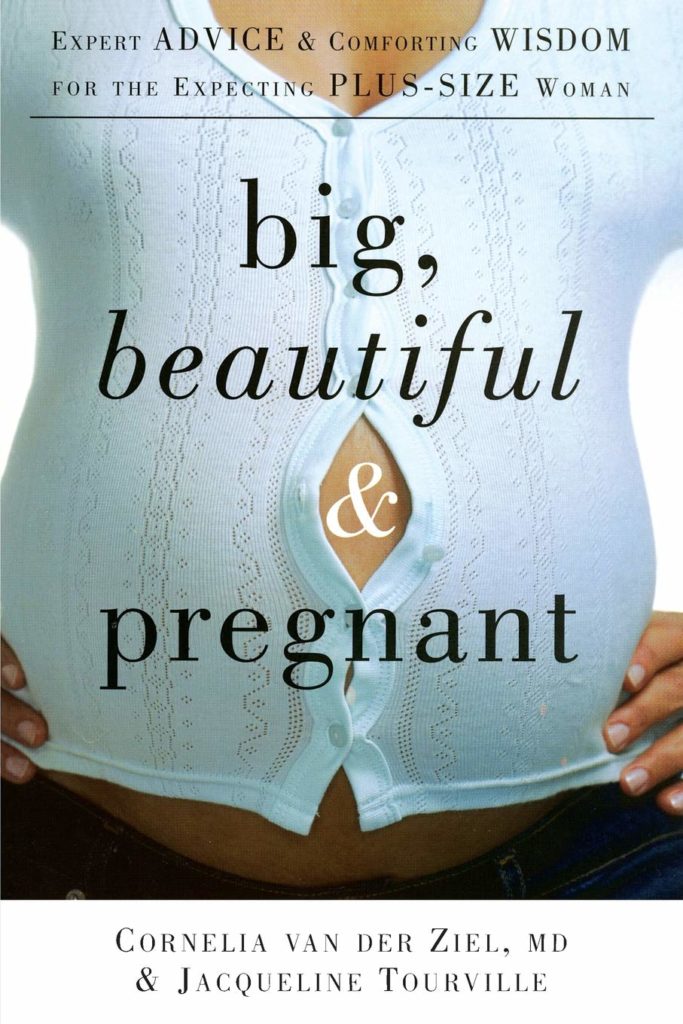
Ina May’s Guide to Childbirth, Ina May Gaskin
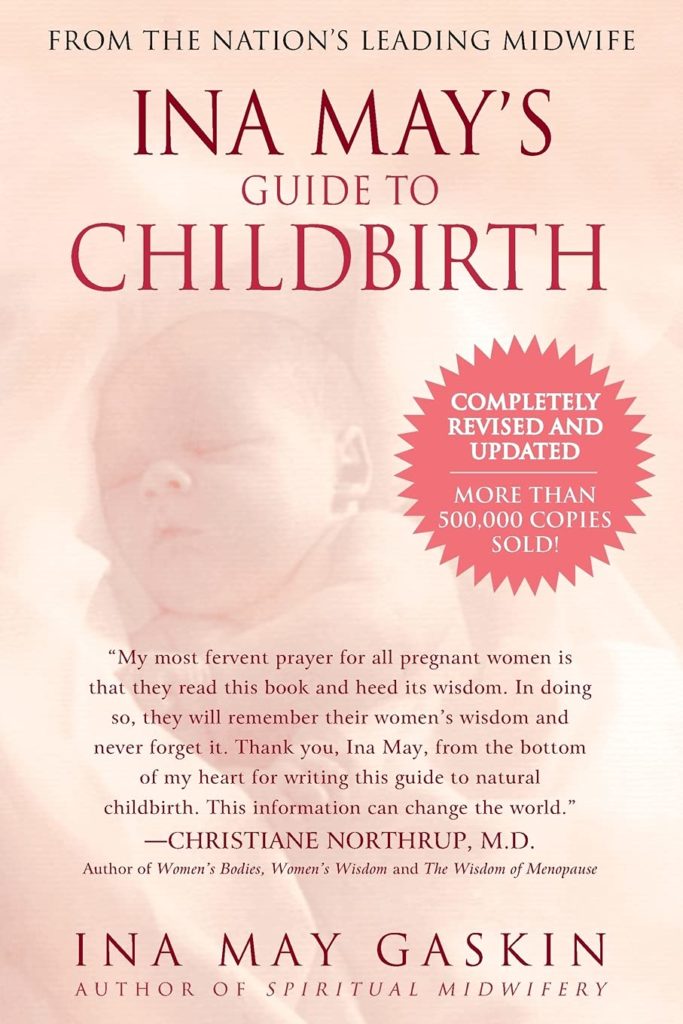
Pregnancy After a Loss: A Guide to Pregnancy after a Miscarriage, Stillbirth, or Infant Death, Carol Cirulli Lanham
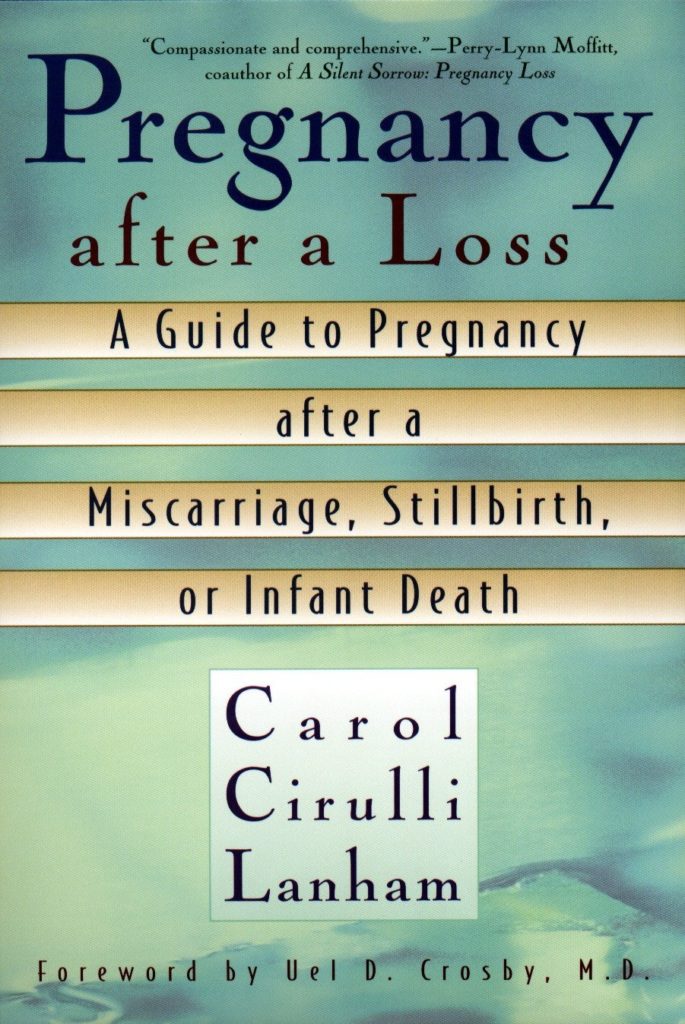
The Birth Partner: A Complete Guide to Childbirth for Dads, Partners, Doulas, & Other Labor Companions, Penny Simkin
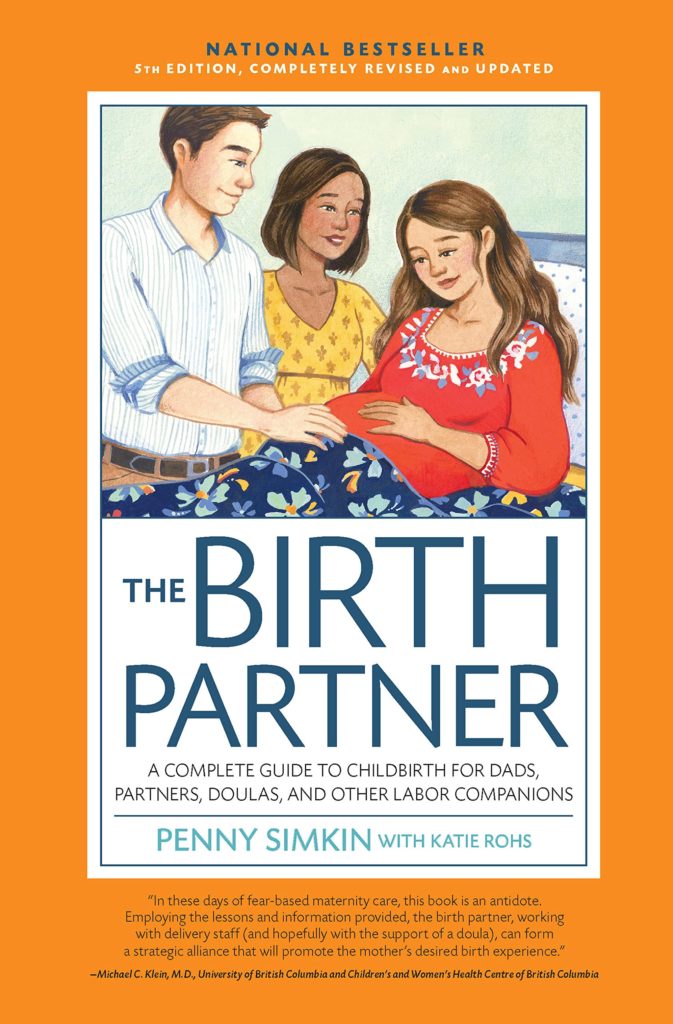
See also: Our Guide to Natural Childbirth, which contains more book recommendations for an unmedicated delivery.
What apps do you recommend for pregnancy?
Great question, Erica! We will look into it!
Check the book Pregnancy Brain, by Parijat Deshpande.
Would also recommend Mayo Clinic Guide to a Healthy Pregnancy